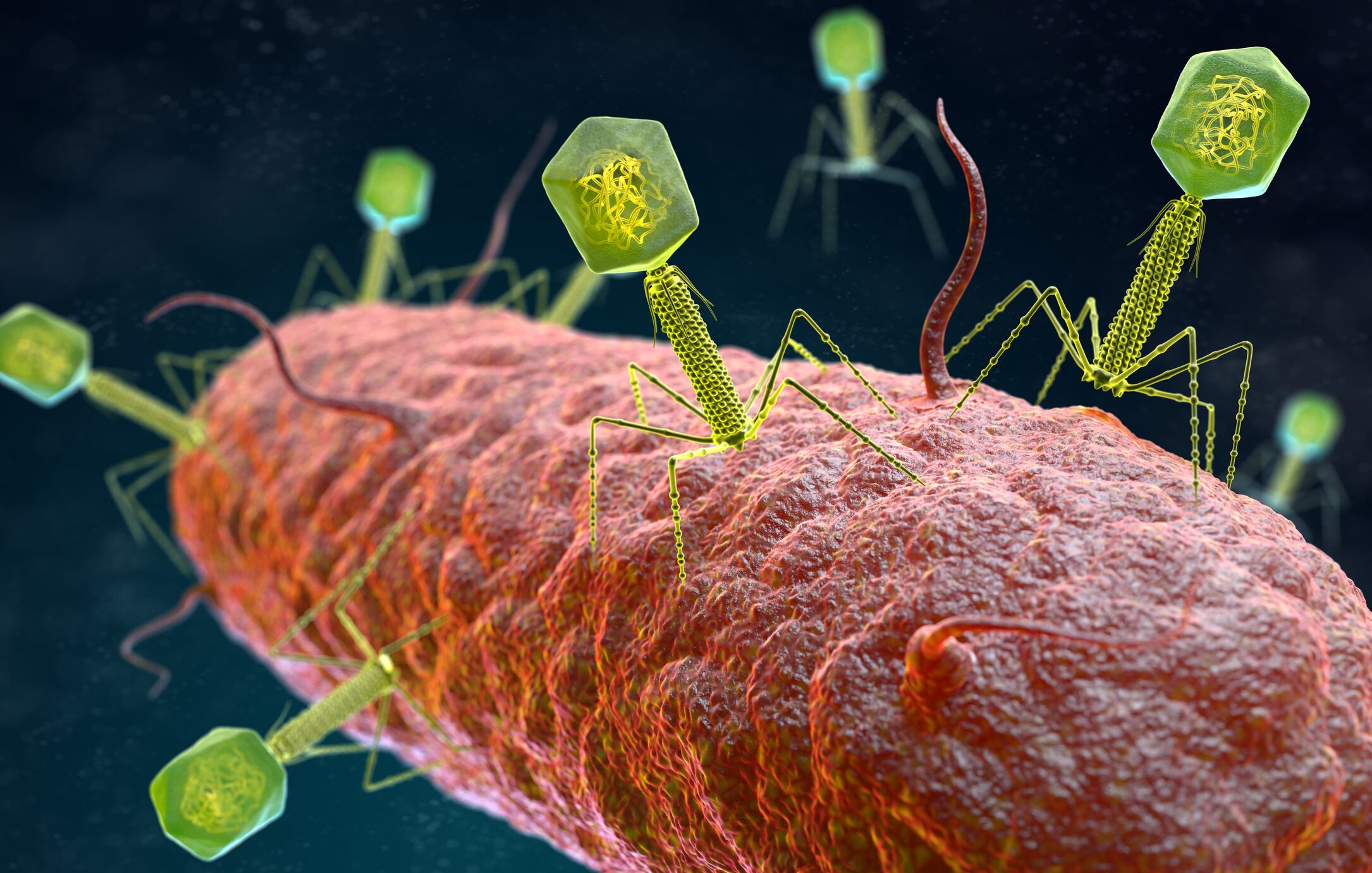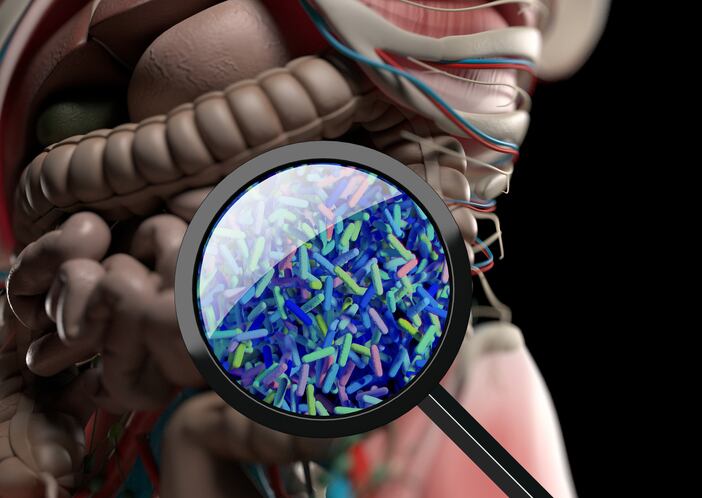The biodiversity of the human gut is significant: In addition to bacteria (the microbiome), and fungi (the mycobiome), the gut also contains hundreds of thousands of viruses called bacteriophages, which can infect bacteria.
It is known that imbalances in our gut microbiome (dysbiosis) may contribute to diseases and conditions such as Inflammatory Bowel Disease, allergies and obesity, but our knowledge and understanding of the interplay between our gut bacteria and the bacteriophages that infect them is less developed.
“It’s important to remember that not all viruses are harmful, but represent an integral component of the gut ecosystem,” said Dr Alexandre Almeida, Postdoctoral Fellow at EMBL’s European Bioinformatics Institute (EMBL-EBI) and the Wellcome Sanger Institute.
“For one thing, most of the viruses we found have DNA as their genetic material, which is different from the pathogens most people know, such as SARS-CoV-2 or Zika, which are RNA viruses. Secondly, these samples came mainly from healthy individuals who didn’t share any specific diseases. It’s fascinating to see how many unknown species live in our gut, and to try and unravel the link between them and human health.”
A significant step forward is the new Gut Phage Database (GPD), created by scientists at the Wellcome Sanger Institute and the EMBL-EBI. The database is a collection of about 142,000 non-redundant viral genomes obtained by analyzing 28,060 human gut metagenomes from across the world.
The GPD will be an invaluable resource for those studying bacteriophages and the role they play on regulating the health of both our gut bacteria and ourselves, according to the institutions.
“Bacteriophage research is currently experiencing a renaissance. This high-quality, large-scale catalogue of human gut viruses comes at the right time to serve as a blueprint to guide ecological and evolutionary analysis in future virome studies,” said Dr Trevor Lawley, senior author of the study from the Wellcome Sanger Institute
Deerland: “The applications for various health areas abound”
Deerland Probiotics and Enzymes supplies a bacteriophage ingredient to the dietary supplements industry. The company’s PreforPro ingredient is a combination of LH01-Myoviridae, LL5-Siphoviridae, T4D-Myoviridae, and LL12-Myoviridae phages.
The company has a composition patent to cover the ingredient, titled “Prebiotic compositions comprising one of more types of bacteriophage”, and published science supports the efficacy of the ingredient (Grubb et al. Nutrients, 2020, 12(8): 2474, doi: 10.3390/nu12082474).
Dr John Deaton, VP of Science & Technology, Deerland Probiotics and Enzymes, told NutraIngredients-USA: “This work shows the important role of bacteriophages in shaping and balancing the microbiome. The abundance of diverse bacteria that make up our bodies is well-known—and bacteriophages are even more prevalent in the body. And certain bacteriophages can help enhance the growth of good bacteria over unwanted bacteria.
“So many consumers really do their research; and the more published clinical data that’s available on bacteriophages and their role in our health, the more confidence they will have in this ingredient. Consumers know there’s a link between the condition of the gut and their overall health, and this recently published research makes yet another connection to the intricacies of the microbiome.
“I do expect research on bacteriophages to accelerate. Bacteriophages are one of the most common things your body interacts with on a regular basis through contact, consumption, etc….they aren’t a foreign substance. Not only that, but certain phages are very useful to the body in keeping unwanted bacteria in check. It’s like the old adage “the enemy of my enemy is my friend”. Bacteriophages are part of the natural process our body uses to keep our microbes balanced. And with so many species, the applications for various health areas abound.”
Prebiotics?
Deerland positions PreforPro as a “novel prebiotic that supports the growth of healthy bacteria throughout the digestive tract through a mechanism that is not fiber, carbohydrate or starch‐based”.
A prebiotic is defined as: “A substrate that is selectively utilized by host microorganisms conferring a health benefit” (ISAPP 2017). The ingredients are typically fiber or starch-based components that “feed” the good bacteria in the gut.
Gut Phage Database
Details of the new research are published in Cell. One of the most notable findings was that, among the tens of thousands of viruses discovered, a new highly prevalent group of viruses believed to have a common ancestor (called a clade) was identified, which the authors refer to as the Gubaphage.
The Gubaphage clade is composed of 2 genera, said the researchers, is able to infect bacteria from the Bacteroidaceae and Porphyromonadaceae families. Gubaphage was found to be the second most prevalent virus clade in the human gut, after the crAssphage, which was discovered in 2014.
“The combined prevalence of the 2 Gubaphage genera reached a sample proportion between 10%–15% in North America, Oceania, and Asia, whereas in Europe it was found to be infecting bacteria in ∼37% of the samples,” noted the researchers.
“Having a comprehensive database of high-quality phage genomes paves the way for a multitude of analyses of the human gut virome at a greatly improved resolution, enabling the association of specific viral clades with distinct microbiome phenotypes.
“Importantly, GPD provides a blueprint to guide functional and phenotypic experiments of the human gut phageome,” concluded the researchers.
Source: Cell
2021, Volume 184, Issue 4, Pages 1098-1109.E9, doi: 10.1016/j.cell.2021.01.029
“Massive expansion of human gut bacteriophage diversity”
Authors: L.F. Camarillo-Guerrero et al.





